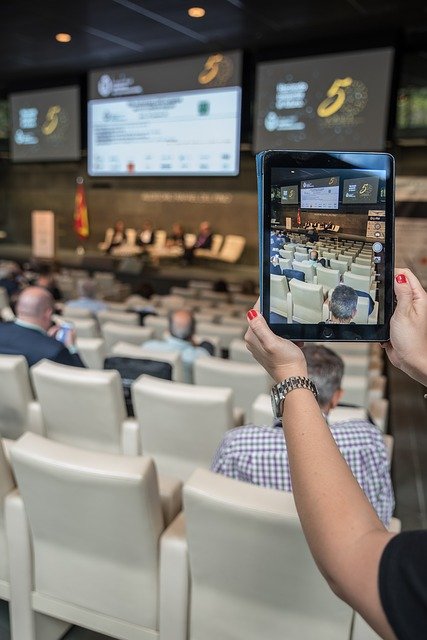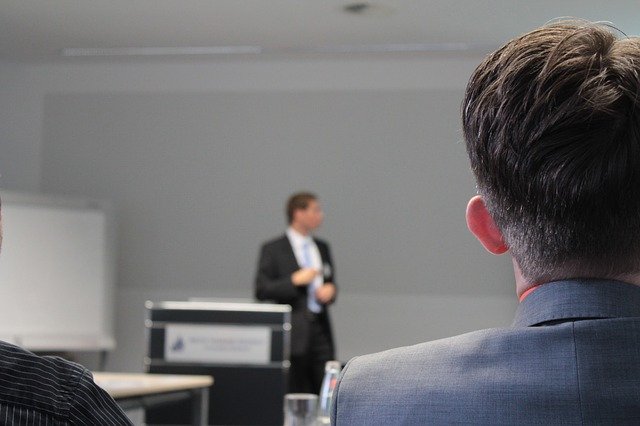Networking! Socialising! Industry news and trends! Your conference promises all this and more. So, why are people opting out of attending this year? After all, you’ve done everything you did last year, and it worked…didn’t it? Perhaps not as well as you think.
As the conference organiser, it’s hard to experience the event as one of your guests would. You’re privy to more information, different facilities and services, and frankly, know much more about what’s going on than anyone else. And despite your best attempts at getting feedback from attendees, the picture you’re given may be incomplete or inaccurate. That’s because a few minutes of glad-handing at the reception, or a few tick boxes in your satisfaction survey may not offer the time, space, or inclination for your guests to raise all of their concerns. So, read on to find out what these are.
1) There weren’t enough networking opportunities

If an attendee left your event last year without making at least a handful of useful new contacts, they may not see the value of attending this year. Conference organisers take it for granted that attendees will mix and mingle, and leave networking to the winds of chance. However, introverted people may need a bit of help getting out of their shell, and even the most extroverted people could use a good networking tool.
A good conference app like Kalido could improve the networking prospects at your next event exponentially. By inviting attendees to join your conference network on Kalido, members can get to know much more about each other, communicate more, and keep in touch after the event.
User profiles allow attendees to showcase their skills, interests, and important projects without boasting. Attendees can then look up these profiles, allowing them to zero in on people who interest them. They can also see each other’s contacts, including common ones that help build rapport, and new ones they can ask for introductions to. Free calls and chats give people a convenient way to communicate. And long after your conference has ended, attendees will be able to track down and stay in touch with each other, without scouring through hundreds of business cards they can’t put a face to.
By helping your attendees network more efficiently, they’ll be much more likely to see the benefit of attending your future events.
2) The venue was uncomfortable

Choosing a venue for a conference is a complicated task. It’s a delicate balance between location, cost, facilities, and availability. You must wrangle your own finance department, the venue’s finance department, and check all the logistics involved. That’s why when you eventually confirm the venue, it feels like you’ve finally completed a herculean task.
Unfortunately, this means that you probably didn’t have time to check the venue for comfort from an attendee’s perspective. Often, even high-end venues have a few wonky seats that should be skipped when allocating seats. Constant squeaking, pokey bits, proximity to audio equipment or air vents, or completely obstructed views could all make the sitter highly uncomfortable and irate. An auditorium that’s unbearably hot or ridiculously cold could also affect the audience’s concentration and comfort. As could sticky floors, or inexplicable damp smells.
Rather than put up with physical discomfort, attendees often skip sessions. This year, they may have opted to skip your conference entirely. So, when choosing a venue, in addition to the usual considerations, test drive the place before committing. Personally check the seats, the lighting, the ventilation, and the audio equipment. Or have a member of your own staff do this. Don’t just take the venue management’s word that everything is fine.
3) The speakers weren’t all they were cracked up to be

A person can be eminent in their field, a genius of the modern age, and yet, a terrible speaker. Public speaking and presenting are very distinct skills, and you shouldn’t assume that someone who should have them actually does.
When choosing speakers, most conference organisers ask for a CV and a brief recap of professional skills or achievements. Few ask for speaking experience or samples. An experienced speaker often has videos from past engagements or radio and tv experiences they can send to you. This is very helpful to gauge whether they’ll be appropriate for your audience. If no previous speaking samples exist, you should video call the speakers as a test. Someone who’s engaging and informed during your conversation will be much more likely to be a decent speaker than someone who’s difficult to chat to.
At the very minimum, you should ask for an outline of the material the speaker is going to share. Sometimes discussion topics are very wide, and the speaker’s content may not be relevant for everyone. Having an idea of what they’re presenting helps you guide them on their final material. It also helps you allocate appropriate panels for them, so they’re speaking to the right audience.
If the speakers from your previous events were boring, uninformative, jittery, arrogant, or just off-putting for some reason, guests may well opt out of a repeat performance this year.
4) The organisation left much to be desired

A well organised event feels slick and quietly competent. If your conference last year was neither, that is a problem.
When organising a conference, you’ll need a team to help you. These could be your own employees, student volunteers, venue employees, or an outside company. Regardless of who you have working for you, you should always ensure they’re competent and helpful. That means solid briefings on what’s expected of them, regular check-ins to see that everything is in order, and rapid problem solving procedures. From the moment attendees step into the venue, they should be greeted by professional, friendly faces. Ushers should lead the way to specific venues, supplies and goodie bags should be fully visible, refreshments should be abundant, event programmes should give all relevant information.
People won’t notice the hundreds of things that went right, but they’ll certainly remember the one thing that didn’t. So, take a bit of time and double check everything.
5) The marketing collateral was terrible

The typos on your website, misspelled email recipient names, or badly designed flyer may not seem like such big deals. After all, it’s the conference itself that matters…right? Not quite.
Your marketing is meant to convince people that your event is worth attending. If it’s sloppy or unenticing, people will expect your event to be the same. Whether you’re handling the marketing yourself or finding a professional on Kalido to help you, you should take the marketing aspect of your event as seriously as the event itself. Your marketing collateral is the first thing potential guests will see. Make sure it’s not the last thing they want to see.
6) The event wasn’t ‘sexy’

Perhaps none of the movers and shakers of the industry were there. Perhaps the event didn’t get much press coverage. Perhaps there just wasn’t a vibe. For whatever reason, your conference just wasn’t a sexy, appealing event that people spoke about for weeks after.
In hindsight, you may know what some of the problems were. Did the speakers let you down? Did the venue? Did your team? Any one or a combination of the factors above could have diminished the experience. And since your attendees were bitten once, you’ll have to work twice as hard to combat their shyness.
Attending a conference means people have to take time from work, possibly time away from their families, cut into their annual budgets, and possibly wrangle a host of supervisors and accountants to be there. So, your event should be both informative and enjoyable to make up for all of that. As a conference organiser, you should give your attendees the best experience possible, given your own budget. Attendees may not say it, but they’re judging everything about your conference to see if it’s worth their time. So, make sure you’re running a tight ship. That way, everyone will be seeing you again next year.

